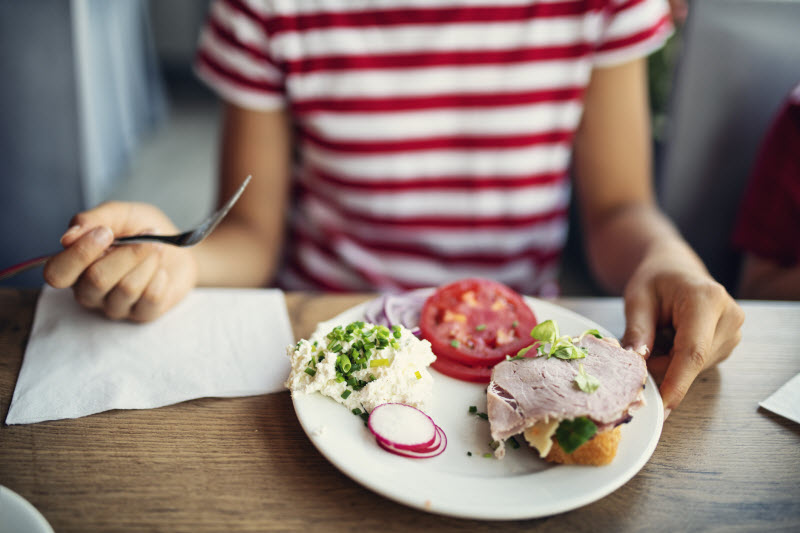Many people turn to the keto diet as a way to lose weight and regulate blood sugar levels—and it can be effective short-term, letting you drop pounds fast as long as you’re in ketosis and stick with the guidelines.
The keto diet involves forcing the body to use fat to burn fat (as opposed to using glucose, which comes from carbohydrates). Keto dieters consume 80% of calories from fat, 20% or less from protein and just 10% or less from carbohydrates. With only 20 to 25 grams of carbs consumed a day, it’s important to meal plan wisely and eat cabs when you need them most.
While the diet can be successful for adults, some wonder – is keto safe for kids? Many children today follow specialty diets, such as plant-based, vegan or gluten-free, especially if they have parents who are following these diets. But, unlike these diets, keto comes with some potential health consequences for kids. Here’s what you need to know.
What are the risks?
For starters, even adults face risks on the keto diet. “For anyone, potential risks include nutrient deficiencies from not eating a wide variety of plant foods, liver problems due to having so much fat to metabolize, constipation and gut health issues, brain fog, low energy and more,” says Kelly Jones, MS, RD, CSSD, LDN.
“There may even be issues with blood glucose regulation, as studies are controversial when it comes to whether the diet helps or harms those with diabetes, and cholesterol may increase, especially LDL or ‘bad’ cholesterol,” she continues.
Plus if you’re looking to gain muscle and become fitter, it could also weaken your performance. “We also know it impairs performance in aerobic exercise, limited intensity and length of movement,” Jones adds.
What are the risks for kids, specifically?
To be fair, the keto diet was originally recommended for children with epilepsy, showing the ability to reduce frequency and severity of seizures.
“If a child suffers from epilepsy, I advise speaking with their medical team about testing a well-planned ketogenic diet and ensure that there is a dietitian specializing in its therapeutic use in this population,” says Jones.
Yet for the average child, being put on any restrictive diet can increase chances of body dissatisfaction and eating disorders, while also putting their physical health at risk.
In addition, children put on a keto diet might not get enough nutrients based on the limited group of foods they can eat.
“There’s a lack of fiber from carbohydrate foods, which can negatively impact gut health, which we know impacts the immune system, energy metabolism, mental health and more.”
Children also need good gut bacteria to create a healthy gut microbiome as they grow. “While our gut bacteria can be damaged at any stage of life, the diversity we build and the bacteria that are most likely to thrive throughout adulthood for us are determined during childhood based on diet, illness, medication, and environment,” Jones explains.
Lack of antioxidants from a variety of plant foods, such as fresh fruit and starchy veggies, may also have short and long term health consequences. And the other drawbacks mentioned for adults may also impact children, too. So it’s definitely important to consult with a physician or dietitian before putting your child on a keto diet.
The Takeaway
For epilepsy, the keto diet may be appropriate for a child. “While I would never recommend a child to be placed on a ketogenic diet without epilepsy, if a child does have epilepsy it is imperative that there is strict oversight from their medical providers including their doctor and dietitian,” Jones says.
If they are put on the diet, it’s important to make sure they’re getting all the nutrients they need and enough calories altogether. A dietitian should be involved to recommend ways to obtain fiber and to otherwise support the gut microbiome, as disruptions in gut health during childhood are indicative of gut health and associated problems as adults.
“The dietitian should also be recommending healthy fats from plants and fatty fish rather than saturated fats from animal products,” she says, as those are better for lowering inflammation and protecting against disease. So, nuts, seeds, olive oil and fish are better than fatty beef, pork or butter.
Ultimately, it’s safest to not let kids follow a keto diet, but if you do want to give it a shot and see how it goes for them, do so very carefully.

